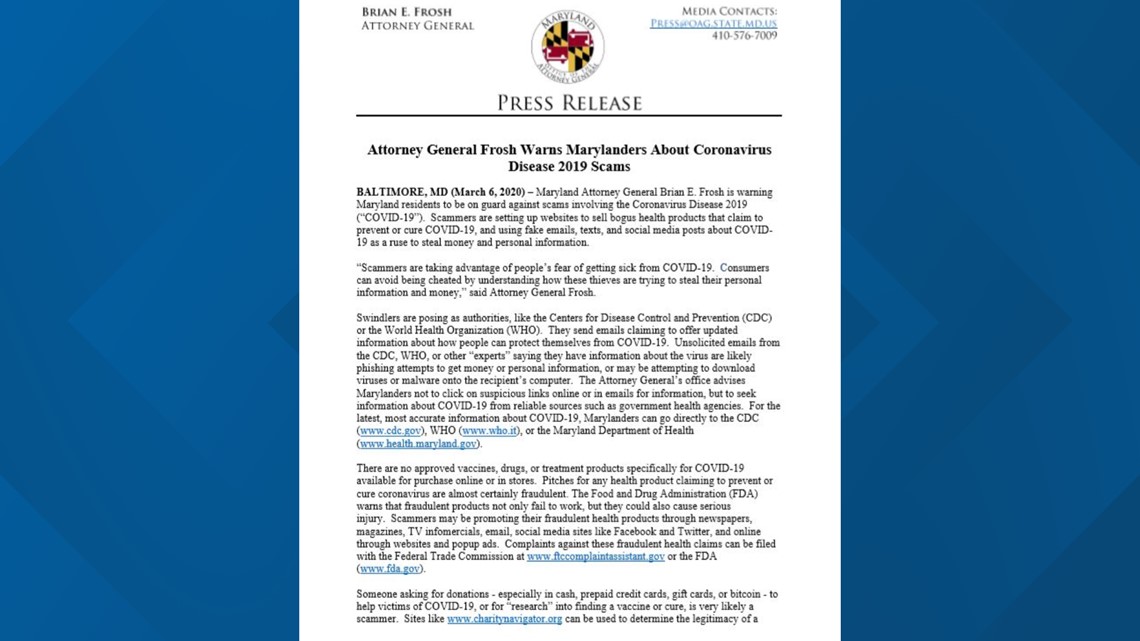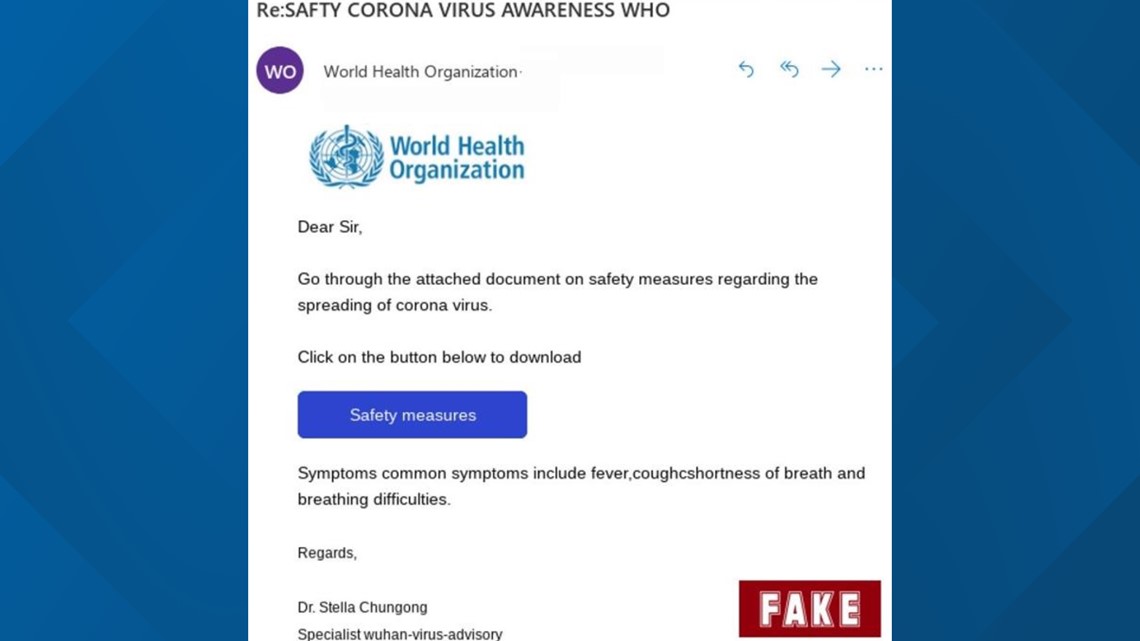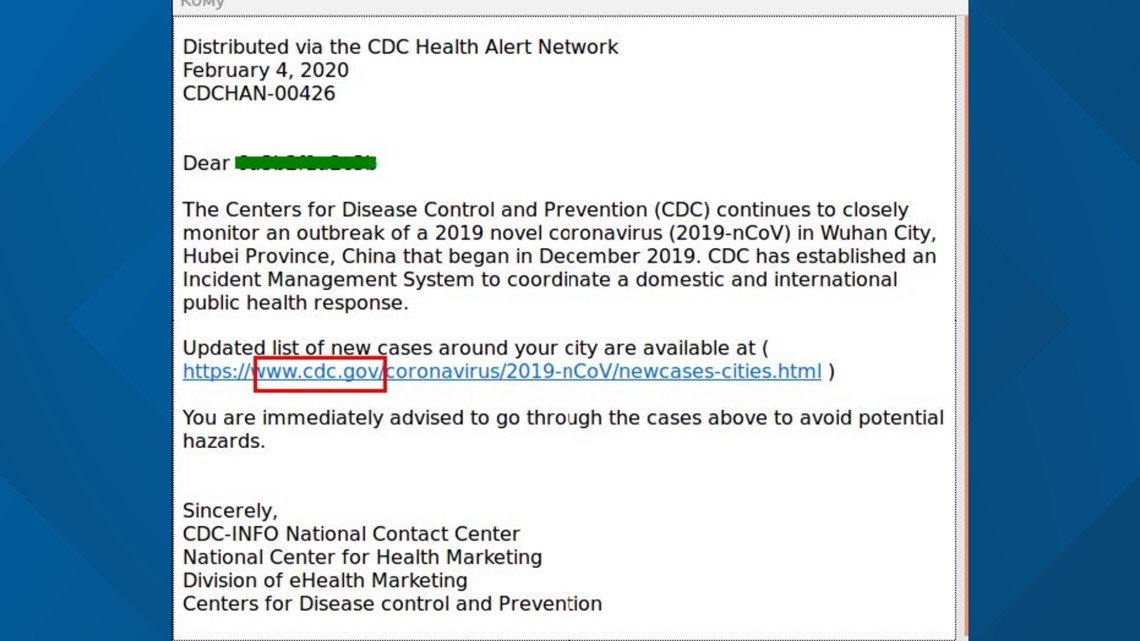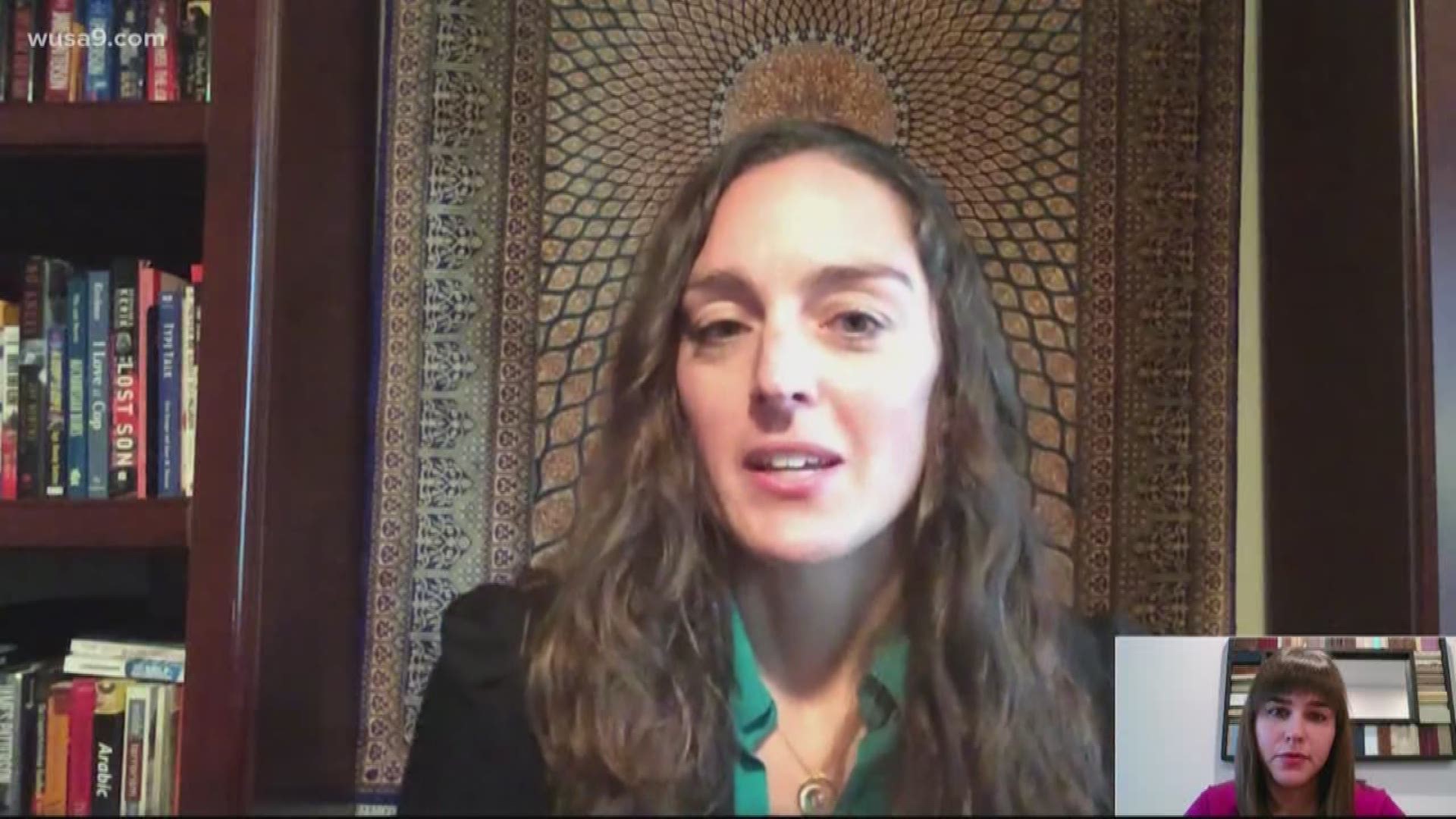QUANTICO, Va. — Law enforcement officials want to prepare you for the possibility of scammers taking advantage of your fears and vulnerability during the coronavirus pandemic. They say they’re already seeing schemes.
"Maryland Attorney General Brian E. Frosh is warning Maryland residents to be on guard against scams," reads a release from the Office of the Attorney General.


“In response to the increased threat of fraud presented by the coronavirus, federal and Virginia state law enforcement leaders announced today the formation of the Virginia Coronavirus Fraud Task Force,” Department of Justice officials wrote in a release.
RELATED: Website was selling fake coronavirus vaccine kits, feds allege in nation's first COVID-19 fraud case
"NCIS urges DON personnel to remain vigilant," a release from the Naval Criminal Investigative Service, or NCIS, said.
The warnings keep on coming.
WUSA9 spoke to Megan Bolduc, NCIS executive assistant director for intelligence and information sharing, via Skype. The agency is headquartered at Virginia's Quantico.
“Individuals want to trust, because they want to protect themselves and their families,” Bolduc said. “In particular, in times of crisis when folks are a little more curious and maybe a bit more vulnerable and seeking additional information or resources, they're going to be a little more susceptible to being reached out to.”
So far, they've seen emails that appear to give medical advice and resources about COVID-19. There have been phone calls about how to get refunds on trips you had to cancel because of the pandemic. And all of them are scams, according to NCIS.
One email example NCIS pointed out looks like it could be from the World Health Organization, but if you look closer, there are both spelling and grammatical errors.


Another example looks like it is from the Centers for Disease Control. It asks you to click on a link to review cases to avoid potential hazards, but NCIS warns clicking on the link could open up your computer to malware.


You want to look for those red flags. Don't open attachments or click on links; go to the websites independently. Don't give out personal information and don't pay upfront for services.
“Our main mission is to protect our sailors and Marines,” Bolduc added. “What happens in scam situations is there is a very wide net that can be cast by the scammers and, unfortunately, our military members, although they may not be targeted directly, they can get swept up in that net.”
NCIS has created a fraud hotline specifically for COVID-19. If you want to report an issue, call 1-800-386-8762.
For the DOJ and Virginia taskforce, if you believe you have been victim of fraud, or need more information about COVID-19, there is a website with more information.
To report fraud directly to the FBI, you can visit their website.

